Hot on the tails of the release of his new coffee table book Thái Công – A Passion for Aesthetics, we speak to the Vietnamese-German interior designer on timelessness, traditions and why he’ll never call himself a minimalist.
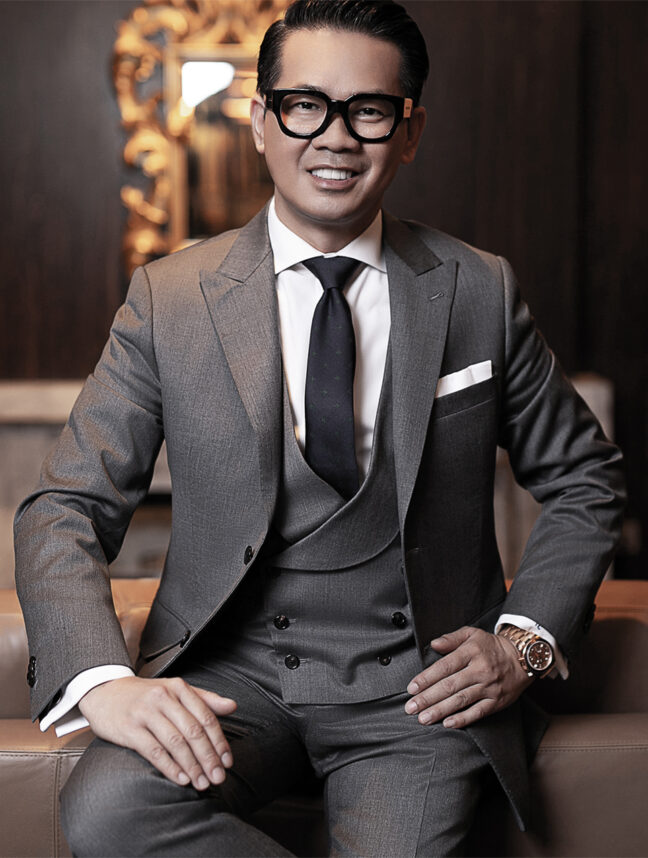
“Only when I live in gorgeous and sparkling spaces do I truly feel like myself,” Thái Công tells Effect. One flick through his luxurious new coffee table book, Thái Công – A Passion for Aesthetics, and it’s clear that when it comes to both life and work, minimalism isn’t a word in his personal dictionary. “No, I’m certainly no minimalist,” he says. “The stripped-down Scandinavian style is not my thing. I am not looking for monotonous simplicity. What inspires me is the multi-faceted nature of eclecticism. I love the refinement that arises only from a mix of different styles and eras, colours, materials and shapes.”
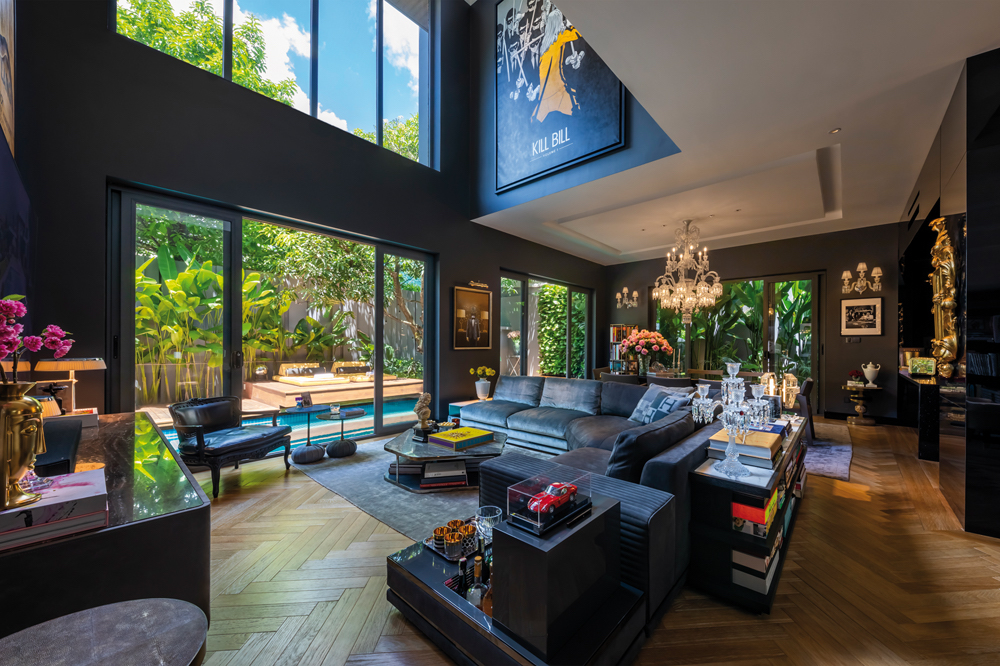
Thái Công marries Asian and European aesthetics in his interior design (Photo © Oki Hiroyuki, Đỗ Sỹ, Vũ Thanh Hải, Mạnh Bi / teNeues)
Born in Vietnam and raised in Europe, while Công may now be on speed dial for some of Asia’s biggest tastemakers, 20 years ago he was studying fashion design and unsure of the path he wanted his career to take. Following stints as a stylist and photographer, which saw him designing and opening his own gallery, his destiny as an interior designer was sealed when the owner of Germany’s George Hamburg hotel enlisted him to oversee its interiors. “To this day they have kept every single detail of my design the same,” he says proudly.
Only when I live in gorgeous and sparkling spaces do I truly feel like myself.
He opened his first official studio in Hamburg, Germany back in 2007 with a second in Saigon, Vietnam in 2014, with his reputation among the Asian market spreading like wildfire ever since. “I have a big client list in Vietnam, especially,” he adds, “but also many other high-class clients all over the world ranging from Hong Kong and India to Singapore and the US.”
Thái Công’s new coffee table book – “A Passion for Aesthetics“
As an avid traveller and self-confessed culture vulture, Công is passionate about marrying both European and Asian traditions throughout his interiors, embracing contemporary designs that incorporate both elements, as well as traditional chinoiserie from the rococo period. Employing a strict design language and understanding of colours to juxtapose original Asian elements (think a finely knotted carpet with a crane motif or the highly polished lacquer surface of a table) with a European aesthetic, he is able to create a smorgasbord of interesting and unique product combinations that are always pleasing to the eye.
Alongside his travels, Công also allows the worlds of fine art, architecture, interior, cinema and fashion to guide him, further increasing his ability to work across a myriad of different epochs and styles. “Culture hugely inspires me throughout all my projects,” he explains. “Even my own house in Saigon, for example, is inspired by cinema. I love watching movies, and back in the day people would hand paint movie posters rather than print them. I love that idea and draw many movie posters for my housing projects.”
Timeless is a key defining characteristic of all Công’s projects, and you’ll never see cutesy elements throughout any of his homes. Instead, his focus is longevity, and he opts for classic shapes such as black Louis XVI-style armchairs or crystal chandeliers that never lose their relevance. “Throughout my book, I reference more than 18 old and new projects, and what surprises me the most is that the projects I completed many years ago, which now stand next to newer buildings, are still aesthetically splendid,” he says. “Even after all the years and changing trends, my clients still love the homes I made for them as much as the day they first stepped inside. To me, that is a timeless element.”
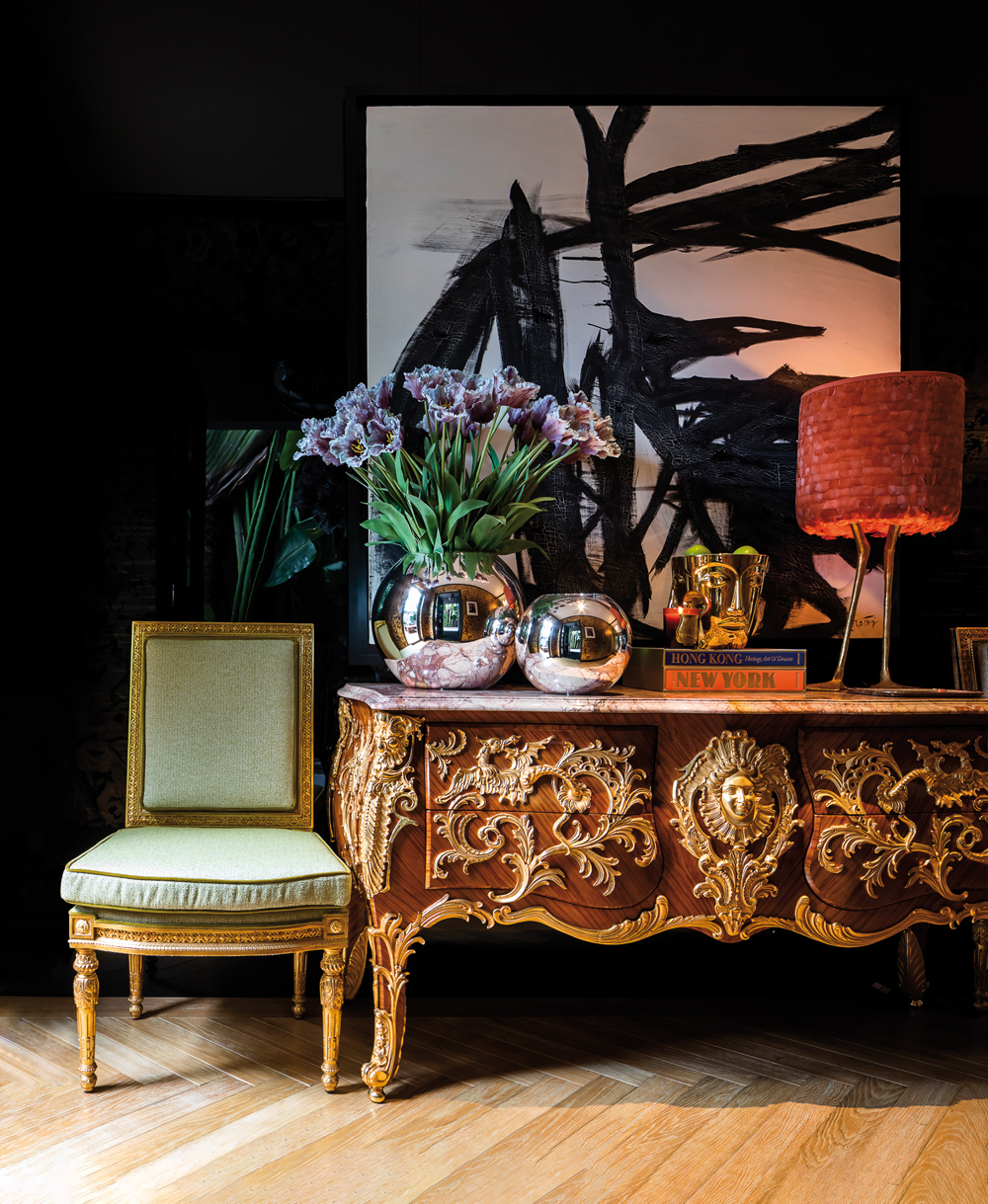
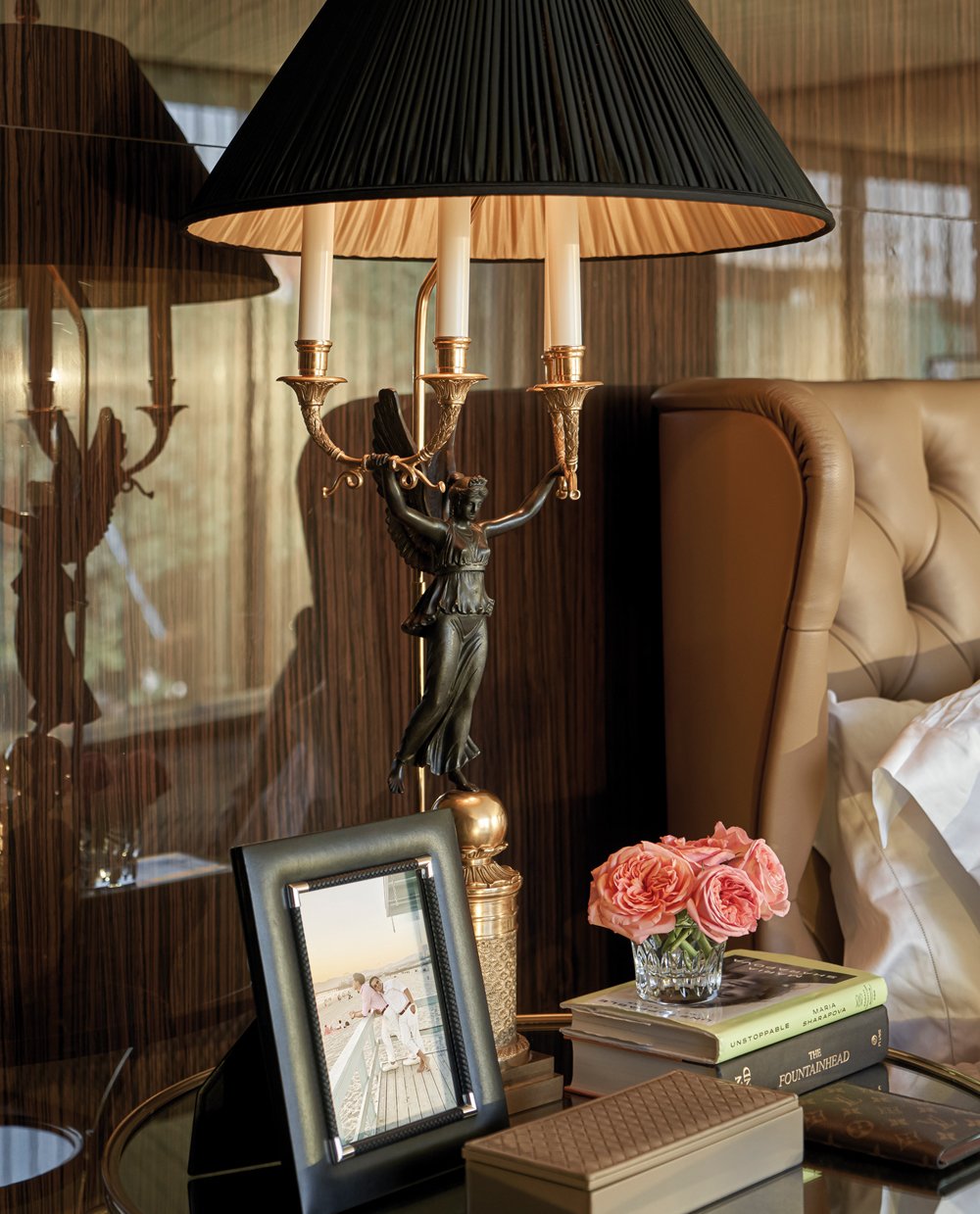
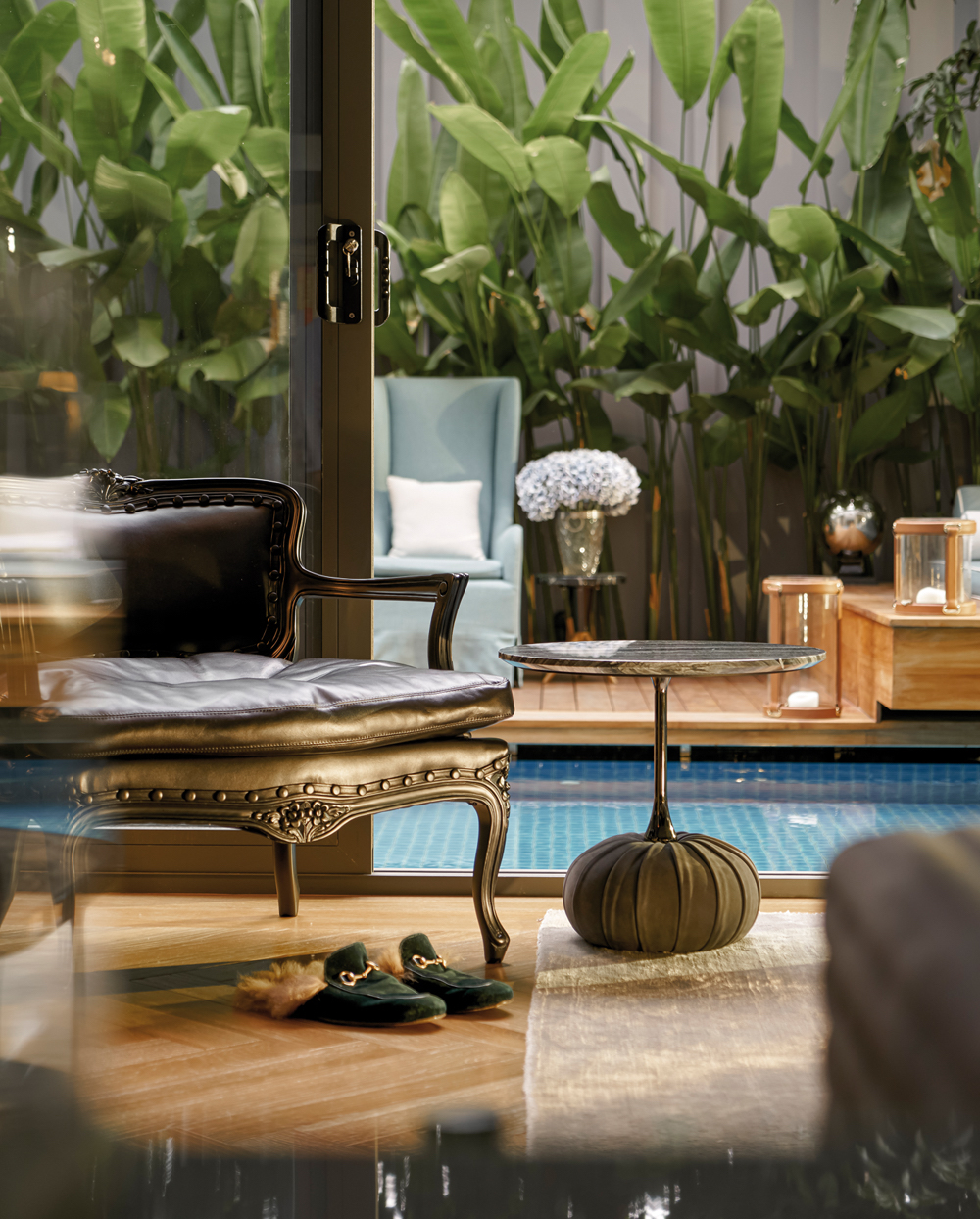
Thái Công focuses on longevity in his interiors, favouring classic shapes such as Louis XVI-style furniture or period lighting (Photos: L: © Oki Hiroyuki; C & R: © Đỗ Sỹ)
For the interior of an apartment in Hamburg that is now more than 15 years old, for example, you won’t find anything to indicate its age. Instead, you’ll stumble upon furniture classics such as the cubist armchairs by Jean-Michel Frank pushed together to form a love seat, a baroque chandelier, a pure-white glossy tabletop and a beautifully timeless colour scheme of white and cream. “Not only is it unnecessary to swap out furniture to create a modern look, it also doesn’t reflect my perception of sustainability,” he explains in his book.
“Instead, I prefer to host styling parties with my clients from time to time. During these parties we work together to rearrange sofas, armchairs and tables to create a new sense of space. And all without compromising on substance. If needs be, simply changing a few accessories can also help to create a new image.”
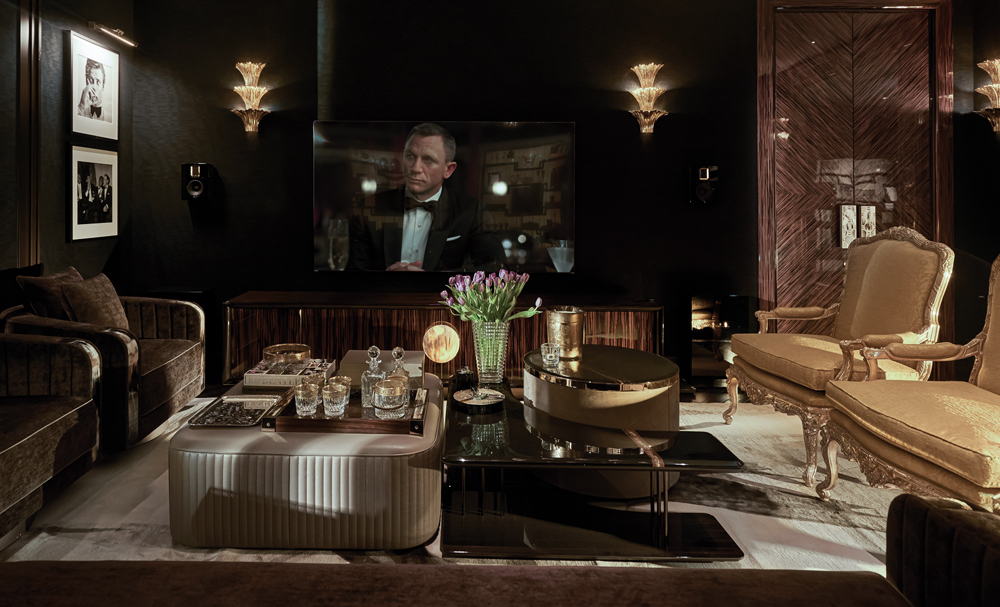
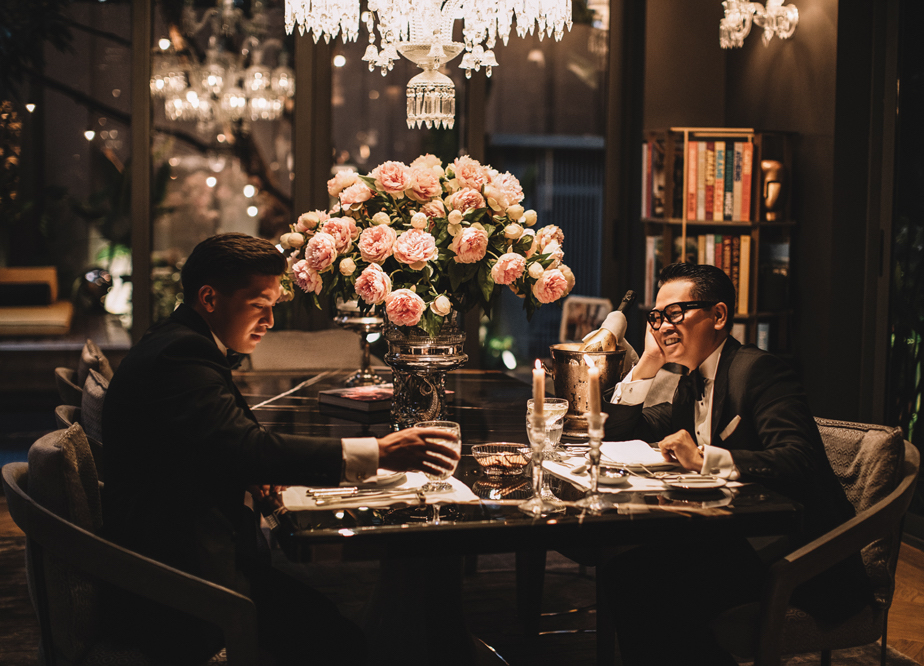
Enveloping, intimate interiors are a trademark of Thái Công’s interior design, as are classic details like crystal chandeliers and vintage wall sconces (Photos: Top: © Đỗ Sỹ; Bottom: © Mạnh Bi)
As another nod to sustainability, Công also boasts a large network of special manufactories around the world that he commissions to produce goods and craftsmanship of a truly unique standard. As such all products are characterised by the long traditions, experiences and know-how of special family businesses rather than passing fads that clients will be bored of come next season. One thing’s for sure though – they will always be functional. “I am a self-proclaimed aesthete and a pragmatist, so functionality is my first priority,” he adds. “No matter how beautiful the design, colour or style, if a product of layout of a space isn’t functional, it will never suit the client.”
To Công, this may mean having a powder room by the entrance where guests can freshen up, a wardrobe hidden behind barely visible doors in the wall panelling of a dressing room, or even – in the case of his own home – a bedroom shoe cabinet with a back wall that opens from the hallway so that household staff can access it without having to enter the room. “I want to make my clients feel comfortable and like they can enjoy life to the fullest. After all, they work hard and when they come home, I want them to feel like all the hard work and effort was worth it.”
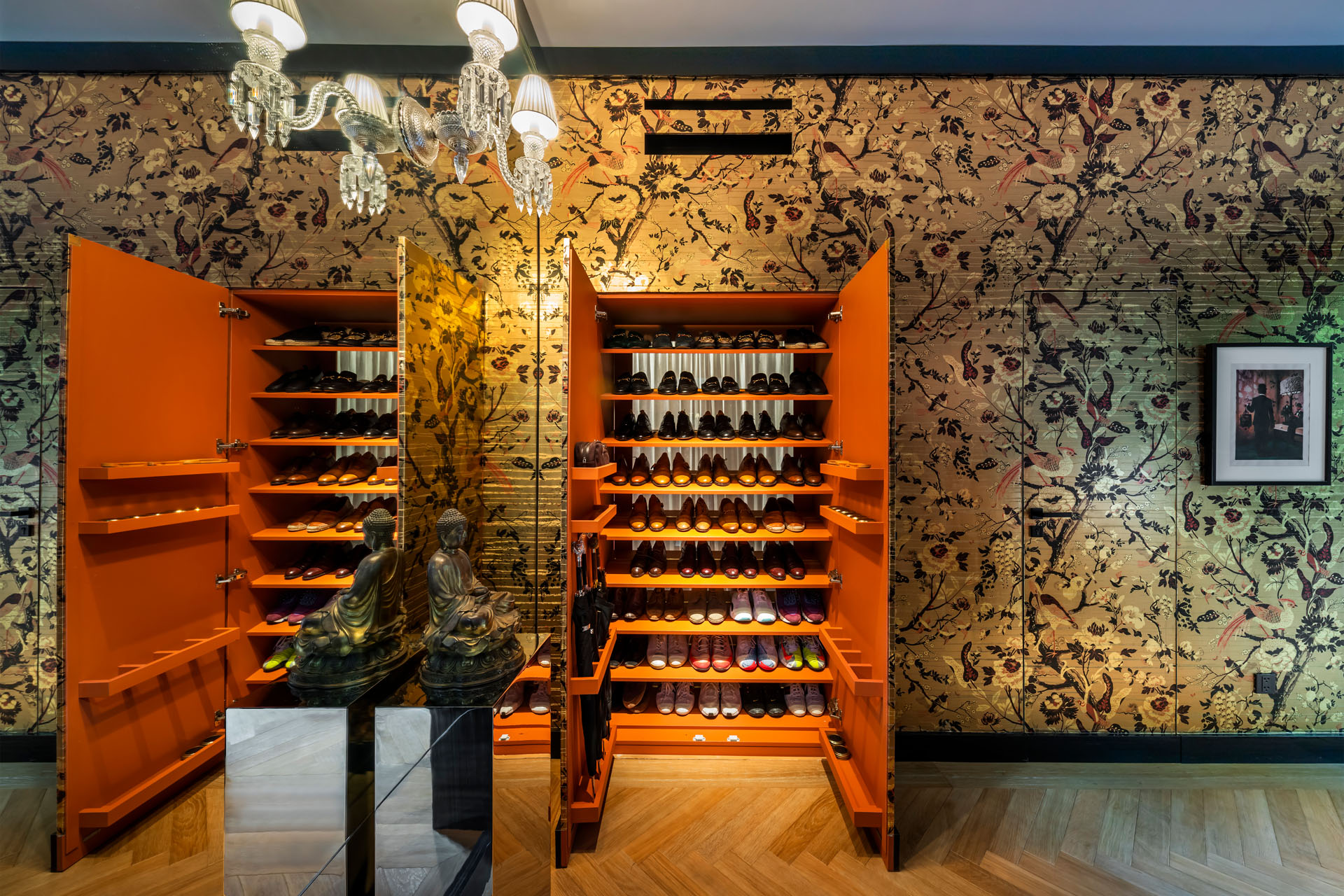
A bedroom shoe cabinet with staff access via the back wall – a detail in interior designer Thái Công’s own home (Photo courtesy Andrew Martin Interior Design Review)
The same goes for lighting, which he believes is key to creating a happy home. “My clients want to feel confident and attractive even at home,” he adds. “You can only do that once you have succeeded in creating the perfect lighting.” Timeless, glamourous, and without a hint of shabby chic in sight, Công’s boundless desire for aesthetics may mean he only surrounds himself with beautiful things, but his homes will always be what he calls life over living spaces. “A place where everyone feels at home,” he concludes. “I always try to do better today than yesterday, and I believe that the future still has many special projects in store for me. I will always be passionate about my craft.”
Source: EFFECT MAGAZINE